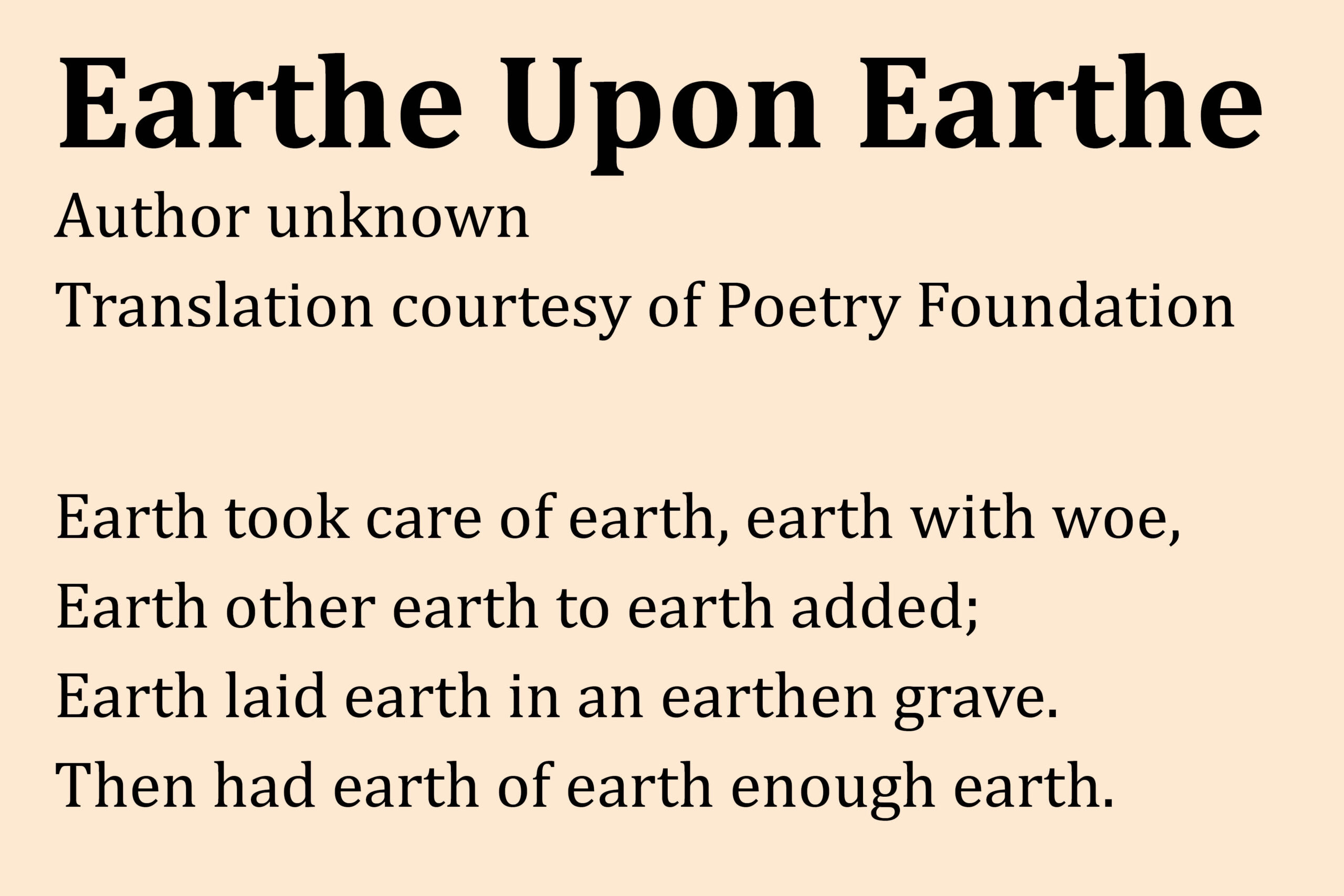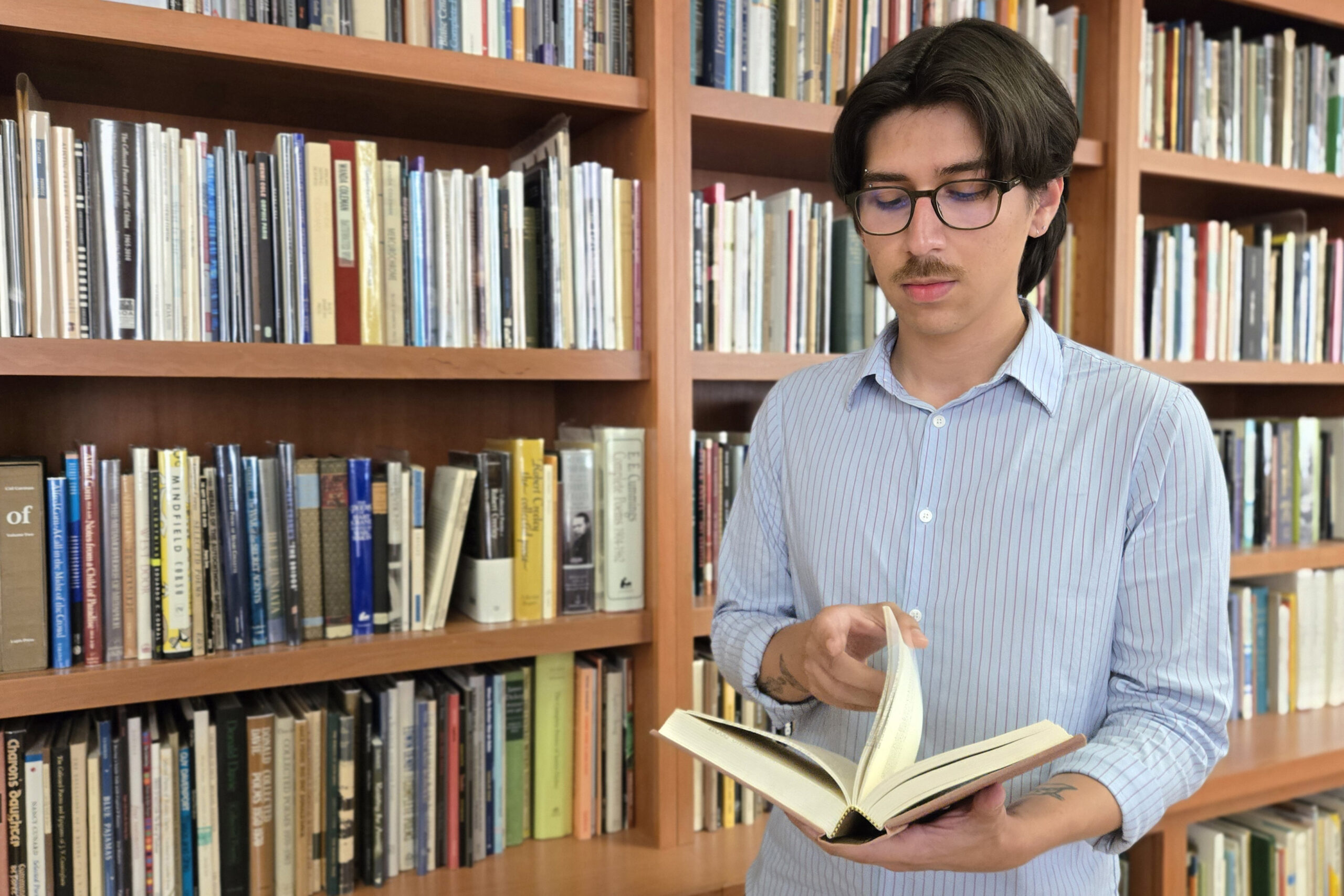English major finds timely meaning, timeless themes in 14th-century poem
| May 29, 2025
“I wanted to feel like I was in the 14th century.”
For Eric Sican, a third-year English major, that mindset was a key component of a sophisticated research project on a Middle English poem called “Earthe Upon Earthe.”
The poem, whose original author is unknown, explores the relationship between humans and the planet, both as a source of life and as their eventual resting place in death. Over time, “Earthe Upon Earthe” came to exist in multiple versions — with verses likely added by many different authors, each with subtle variations in wording and meaning.
Sican’s research, which is supported by the UCLA/Keck Humanistic Research Awards program, aims to unravel those additions and differences, and to analyze how they reflected evolving medieval attitudes toward agricultural, medical and religious practices.
And while time-traveling back to the 1300s was not in the cards, Sican took a unique approach to his research. He not only scoured texts at UCLA’s Charles E. Young Research Library and William Andrews Clark Library, but — knowing that iterations of “Earthe” were sung during church services during the Middle Ages — he also arranged meetings with a half dozen Los Angeles priests and nuns.

Sican shared his translation of the poem with clergy members and asked for their perspectives on what the poem might have meant to churchgoers hundreds of years ago.
“One priest told me that it spoke to the idea that food is something that gives us life, but the plants and animals we eat also had lives of their own,” he said. “And that food might save you from hunger for a little bit, but at the end of your life, we all die, too, regardless of how much food we’ve had. He meant that part in a joking way, but it was something that definitely made my wheels turn.”
Sican, a Los Angeles native, discovered the poem during the winter quarter of 2024, as part of a research project exploring environmental poetry more broadly; that work was supported by the UCLA Undergraduate Research Fellows Program. When he came across “Earthe Upon Earthe,” he was struck by its profound themes.
“The poem isn’t merely a form of artistic expression — it’s a form of acknowledgment of the surrounding world,” Sican said.
He also realized that poem would be a rich subject for original research because, although it is often included in anthologies and therefore widely read by English scholars, it has been the object of comparatively little scholarship.
“At its shortest, the poem is only four lines long, and that may make it seem like it’s easy to unpack and pass over,” said Erica Weaver, a UCLA assistant professor of English and Sican’s faculty advisor for the project. “But Eric’s work shows that there is still a great deal to say about this seemingly simple poem.”

In addition to studying materials in UCLA libraries, Sican interviewed local religious leaders about the poem.
Although the poem’s roots date back seven centuries, Sican said there are obvious parallels to the present day.
“The reason I’m working with this poem specifically is that it speaks to the environmental issues that we’re dealing with today,” he said. “A lot of people are trying to express their concerns about environmental issues through art or poetry or books, as a way of showing they’re fighting for their rights and their environmental safety. That made me make me think about how people might have done that in the past.”
Weaver said she has been impressed by Sican’s enthusiasm for the work and his ability to tie together such disparate subjects as medieval burial practices and present-day ecocriticism.
“Eric is committed not only to contemporary critical methods, but also to the historical past, so his project remains true to ‘Earthe Upon Earthe’ as well as to topics of growing concern today,” she said. “His work highlights enduring themes such as attitudes toward mortality and humanity’s place in the wider world.”
Sican, who hopes to eventually pursue a doctorate in English, said work like his demonstrates that the humanities can offer essential insights into today’s most pressing concerns.
“This project has put me in a position to understand that humanities are very important for how we learn about social and environmental issues — the kinds of things that impact the students on campus today,” he said. “So this work isn’t just important to me; it’s also important for other students who might not get to explore these questions in their education.”








